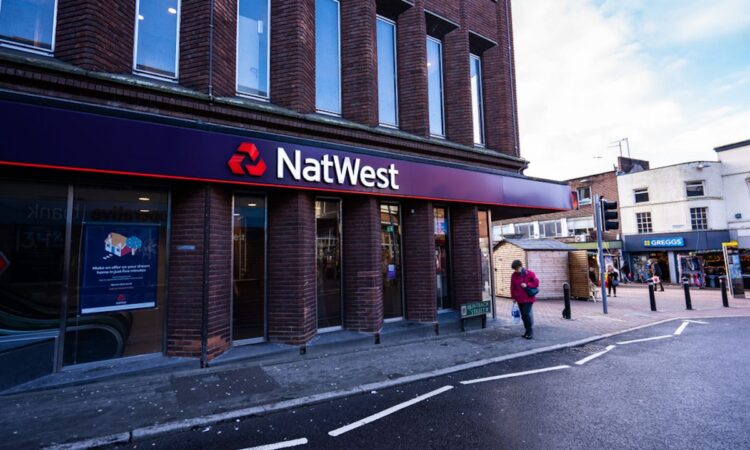By Tony O’Reilly-
NatWest Group has agreed to buy back £1.2bn of shares from the UK government, taking majority private ownership, more than 13 years after the company was bailed out by taxpayers at the height of the financial crisis.
The company, formerly known as Royal Bank of Scotland Group (RBS), said it had agreed to make an off-market purchase of 550m shares, or 4.91% of its share capital, from HM Treasury at Friday’s closing price of 220.5p, in a statement to the stock market on Monday.
The deal, the fifth since the bailout, will be completed on Wednesday, leaving the government with a 48.1% stake in the banking group, a symbolic moment after more than 13 years of majority state ownership. At the peak, the government owned 84% of the group.
The UK government’s stake had been at 82% for years, with the aim of seeing whether its share price could recover to the breakeven price of above 500p.
Natwest has incurred high losses and enormous legacy costs from legal action and redress, while it was forced by regulators to shed some of its more lucrative divisions.
The Economic Secretary to the Treasury authorised the sale of approximately 550 million shares in NatWest at 220.5p per share raising a total of £1.2 billion. The shares were bought back by NatWest and the process was managed by UK Government Investments.
Natwest boss Alison Rose called the share buyback an “important milestone”.
Ms Rose said the deal would be a “good use of capital for the bank and our shareholders”.
“Reducing government ownership below 50% is an important milestone for Natwest Group and a further demonstration of the progress we are making as we continue to deliver for our customers and shareholders,” she added.
Gordon Brown’s government way back in October 2008, had announced the £37bn bailout in October 2008, after the collapse of the US investment bank Lehman Brothers caused chaos across the global financial system. As well as RBS, the bailout also included Lloyds TSB and HBOS, which later combined to form Lloyds Banking Group. Lloyds bought back the last of its shares from the government in 2017.
The path back to majority private ownership has been longer for NatWest Group, which became a symbol of the pre-financial crisis excesses of British banking, after a series of disastrous expansions under chief executive Fred “The Shred” Goodwin, who was later stripped of his knighthood after public ire. The chief executive, Alison Rose, ditched the RBS Group brand in 2020.
The latest NatWest share purchase price represents a substantial loss for the taxpayer, which paid an average of 500p a share in 2008. The government’s remaining stake will be worth about £11.9bn at Friday’s closing price.
John Glen, the economic secretary to the Treasury under the chancellor, Rishi Sunak, said: “This sale means that the government is no longer the majority owner of NatWest Group and is therefore an important landmark in our plan to return the bank to the private sector. We will continue to prioritise delivering value for money for the taxpayer as we take forward this plan.”
The government had planned to sell the entire public stake in NatWest by 2023-24, but delayed the share sales because of the pandemic.
The Office for Budget Responsibility, the independent budget watchdog, said last week that the government had recouped £134bn from its financial crisis interventions, compared with an outlay of £137bn.
That would leave the government with a cash surplus of £17.1bn for the financial crisis measures. However, that does not include the cost of borrowing to fund the bailout, with an estimated £47.7bn in extra debt interest costs, meaning the crisis has cost the government £31bn in cash terms alone.
Simon Adamson, the chief executive of debt ratings agency CreditSights, said the share sale was “an important milestone in NatWest’s reprivatisation”, albeit one with no “significant practical consequences”.
The Economic Secretary to the Treasury, John Glen said in a statement :
This sale means that the government is no longer the majority owner of NatWest Group and is therefore an important landmark in our plan to return the bank to the private sector. We will continue to prioritise delivering value for money for the taxpayer as we take forward this plan.

